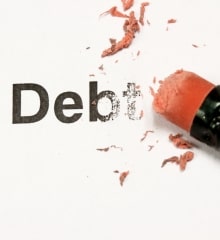What Happens to Your Student Loans in a Chapter 13 Bankruptcy?
Student loan debt has swelled to an unmanageable size in the United States and it continues to increase. In 2015, total student loan debt in the
US was estimated at
nearly $1.2 trillion. Many people in Atlanta and throughout Georgia are having serious difficulty managing their educational loan payments each month.
Unfortunately, it is almost impossible to discharge student loans through bankruptcy. Unless paying back your loans is causing you a severe
hardship beyond what many other Americans face, your loans will not be discharged. Chapter 13 bankruptcy does,
however, offer some significant benefits for those dealing with student loans in addition to other types of debt.
Chapter 13 bankruptcy, also known as debt reorganization, works by condensing all of your unsecured debts into one smaller monthly payment
based on what you can afford. This means that your student loans, your credit card debt and your medical bills will all be treated as one
payment for the duration of the bankruptcy process.
For three to five years, you will make this payment, as well as any payments for secured debts such as mortgages. This process comes with
some major benefits for those who are stuck with student loans, including:
-
Lowered payments. During the life of the payment plan, you will likely be paying an amount you can afford to your
student loan creditors, as opposed to the unmanageable payments you may be making now.
-
Automatic stay. As soon as you file, an “automatic stay”
will be granted, forcing all creditors to stop calling you and stop trying to collect.
-
Time. A Chapter 13 bankruptcy gives you time to get a higher paying job or take other steps to increase your income
without having to worry about unaffordable payments.
-
Elimination of other debts. While your student loans will not be discharged at the end of the bankruptcy process,
many of your other debts will. When the process is over, you will suddenly be free from credit card payments and other forms of debt,
making your student loan bills much more affordable.
As student loan balances continue to grow and more Americans are having financial problems due to educational debt, larger solutions
are needed. In the meantime, the bankruptcy attorneys at DebtStoppers can help you get your financial life back on track. For a free
consultation, call us at 678-673-2142 or contact us online.


